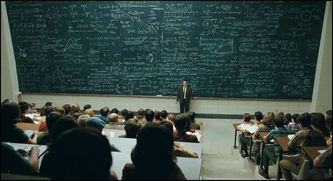 James Davison Hunter, in his new book, and I predict perhaps one of the more influential studies of this decade (To Change the World: The Irony, Tragedy, and Possibility of Christianity in the Late Modern World
James Davison Hunter, in his new book, and I predict perhaps one of the more influential studies of this decade (To Change the World: The Irony, Tragedy, and Possibility of Christianity in the Late Modern World
), says evangelicals — both the James Dobson and the Jim Wallis style — have got it completely, or almost completely, wrong. Among others, he takes shots at Andy Crouch, Brian McLaren, Chuck Colson, and James Dobson.
His book is shaped by three themes: World changing (essay one), power (essay two), and being a faithful presence (essay three). I thought Hunter, whose works have been very influential in the last two decades, almost gave away the house in the last chapter (#7) of essay one when he offered what looked to me almost like an anabaptist theory of how Christians can most effectively change culture, but I’ll get to that in a later post.
A pressing set of questions emerges from essay one: How do Christians change cultures? Can it be done without power? What is a Christian theory of power?
Christians, he contends, in the present way of doing things, cannot change the world and cannot change culture. He sees two or three basic ways contemporary Christians — and he’s fixated on evangelicals with hardly a thing about Niebuhrian theory and not enough about mainliners or Catholics (though he has some about each). This theory of culture change is about ideas, getting better ideas into the hearts and minds of people, and the belief is that culture can change (1) by changing individuals through conversion a gradual impact on culture can be achieved; or (2) change by activism at the political level (get better politicians and justices etc). Or (3), and I see this one as an extension of the second, by actively working for social reform (think prohibition). So, the view is that cultures change when people change. Hunter: “This account is almost wholly mistaken” (17).
He contends there are more Christians now than ever and that culture is not changing but shifting against evangelical visions. The idealism of evangelicalism, the theory of worldview that if changed can change culture, and he adds to it individualism and Christian pietism, is not the most effective way to change things. [Here he sees Andy Crouch’s view as cultural materialism — which surprised me because I don’t look at Andy’s proposal as that radically materialistic.]
In essence, Hunter is an elitist and he sees culture change only through a combination of elites, elite institutions and through power in central places. He proposes eleven theses, and this is the heart of Hunter’s proposal:
Seven propositions on culture
1. Culture is a system of truth claims and moral obligations.
2. Culture is a product of history.
3. Culture is intrinsically dialectical (institutions and ideas).
4. Culture is a resource and, as such, a form of power.
5. Cultural production and symbolic capital are stratified in a fairly rigid structure of center and periphery.
6. Culture is generated within networks.
7. Culture is neither autonomous nor fully coherent.
Ideas sometimes have consequences, four propositions on cultural change:
8. Cultures change from the top down, rarely if ever from the bottom up.
9. Change is typically initiated by elites who are outside of the centermost positions of prestige.
10. World-changing is most concentrated when the networks of elites and the institutions they lead overlap.
11. Cultures change, but rarely ever without a fight.
He then offers evidence, but I find this section skewed: instead of a “thick” description of one culture that was changed, we get a sketch of already-downloaded ideas — how cultures changed (early church, Reformation, etc) through elite connections. Sure, but I’d rather have one description of something that shows how complex; instead, we get a study that merely illustrates what he’s already claimed in the previous section. I don’t question the power of elites; I think we needed a thick description.
And then this: Christians are not close enough the seats of power and to the elite levels to make an impact for cultural change. (This was a good chp.) Christians are present in populist circles and absent in elite circles. They can’t change things; they’re not in the right places.

